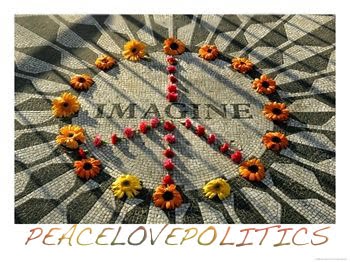Monday, November 23, 2009
Will anyone be thanking you this year?
Tuesday, November 17, 2009
The News Stays PC, and for Good Reason
The media is once again under fire, this time for its coverage of the Ft. Hood tragedy. In an article about the media's coverage of the event, Pew Research wrote:
And in certain parts of the media landscape last week, most notably some talk shows, the failure to pre-empt the Hasan attack took on ideological or cultural overtones.
Conservative radio talk host Pat Gray, subbing for Glenn Beck last week, declared that “the only reason they didn’t [act against Hasan before the shooting] is political correctness. They’re worried about offending Muslims.”
Similar sentiments were heard on Bill O’Reilly’s November 12 Fox News show when analyst Bernard Goldberg attacked the media’s coverage of the case. “Every rational person in the entire country knows that Hasan shot up the place because he’s a Muslim terrorist,” Goldberg declared. But many journalists have tiptoed around the terror issue, he added, “because they don’t want to offend Muslims.”
This is obviously a sensitive and tricky issue for journalists. The media was more or less damned if they did and damned if they didn’t with this story. Because they were cautious and took time to speculate Hasan’s ties with radical Islamists, they are being slammed for not reporting aggressively enough and being too “politically correct”. But in my opinion, if they would have jumped to early conclusions that Hasan was a Muslim terrorist and it turned out that he was not, that would have been even worse. Reporting something that is factually incorrect is always damaging to a news organization, but because of the especially sensitive nature of the accusation, it had the potential to be even more disastrous if not carefully investigated.
What was known from the beginning, was that Hasan was by definition a terrorist simply from the act he committed, regardless of his political or religious motives. I don’t think there was anything wrong with being cautious about those motives before they were solidly confirmed. Whether he was an American terrorist or a Muslim terrorist or any kind of terrorist, he was still a terrorist who went on a murdering spree. The need to attach some kind of religious association with that terrible act of crime, doesn’t make the situation any more or less tragic.
Being politically correct can sometimes be annoying in the journalism world, but it is so crucial to maintaining credibility and respect from all viewers. Reporting controversial facts as they exist and are known is one thing, but making early accusations that have not been proven and include a supposition of crimes motivated by race, gender, religion, etc. could potentially ostracize an entire demographic from your newscast. Maintaining objectivity is key to responsible reporting.
Sunday, November 15, 2009
War Is Not a Game
First-person shooter games like Modern Warfare 2 imitate the experience of killing opponents, and in the process, reduce the reality of murder down to a gunfire sound effect and a virtual explosion of blood that drips down the screen. These effects, coupled with thematic story lines and cutting edge graphics, suck players into a game that portrays war as both thrilling and fun. The game belittles the cruelty, inhumanities, and injustices of warfare, creating a jaded perception of what war is really like.
The entertainment world as a whole has long been guilty of sensationalizing the glory of military combat and killing as a dignified and admirable national duty. The interactive nature of video games though, takes the excitement of the action to another level by putting the responsibility of the outcome in the hands of the media consumer. Killing then becomes a game that must be won, and the gamer becomes comfortable and confident with his or her part in it.
While the games have varying age requirements for purchase that range from 15 years to 17 years, it can be assumed that much younger children are also experiencing these warfare simulations. Many groups have spoken out against violent games like the Call of Duty series, with concerns that repeated exposure to this kind of content over an extended period of time could be even more difficult for impressionable children and teens to distinguish as a false-reality.
Modern Warfare 2 has sparked a renewed sense of alarm among these critics. It’s the first of its kind to take players through a realistic terrorist attack at an airport (including the killing of innocent civilians), an element that’s been dubbed the “most emotionally disturbing scene yet built into interactive entertainment” (Seth Schiesel, New York Times). Such a distinction makes me wonder at what point in time so called “entertainment” crosses the line from entertaining to unnecessary.
Not only do these games desensitize millions to the horror that is real war and terrorism, but they also build up an undue amount of hype about militaristic operations. One cannot help but notice the propagandistic similarities between popular war video games and the military recruiting ads themselves. They each glamorize a job that involves killing, living in unthinkable conditions, and risking one’s life on a regular basis.
The Call of Duty series also paints an incomplete picture that stops short of any kind of reality soldiers may face during or after they serve. For those who do make it out alive, many will experience some kind of physical or mental illnesses, joblessness, homelessness, and undoubtedly the painful daily reminders of what they witnessed and what they themselves took part in. These are the kinds of permanent, life-altering consequences of warfare that aren’t evoked by video games.
And for those who eventually choose to trade in their game controllers for real weapons, one can only hope that they can differentiate the fragility of their own life and the lives of others, from the dispensability of the video game characters on the screen.

